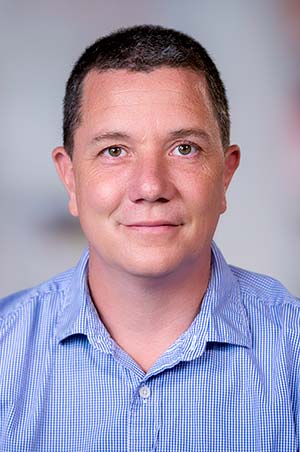James V. Alvarez, PhD
Associate Professor
Public Health Sciences Division, Fred Hutch
Associate Professor
Human Biology Division, Fred Hutch
Member
Translational Data Science Integrated Research Center (TDS IRC), Fred Hutch
Cancer cell biologist Dr. James Alvarez studies breast cancer recurrence, specifically the residual – or dormant – cancer cells that survive systemic treatments like chemotherapy and become a cellular reservoir for relapse or metastatic recurrence. He has done extensive research on the function and mechanism of specific pathways in solid tumors, with a special focus on identifying pathways that regulate the survival and recurrence of dormant tumor cells. In his current research, Dr. Alvarez is investigating a metabolic pathway involving the transcription factor NRF2, a master regulator of the cellular antioxidant response, that can lead to metastatic recurrence in in HER2-positive breast cancers. In pre-clinical work, Dr. Alvarez has successfully targeted NRF2 to stymie recurrence. He continues to investigate how and why NRF2 is activated in recurrence, focusing on ways to target it and successfully translate results to the human setting. Dr. Alvarez has received several distinguished awards for his work over the years and has been a leader in diversity and inclusion efforts at previous institutions.
Education
Postdoctoral fellow, Cancer Biology, University of Pennsylvania, Philadelphia, 2014
PhD, Cell Biology, Harvard Medical School, Boston, 2005
BS, Biochemistry and Cell Biology, Pennsylvania State University, 1999
Research Interests
Breast cancer recurrence
Minimal residual disease and tumor dormancy
Drug-tolerant persister cells
Genome instability during tumor progression
Cancer cell metabolism
"Coming up with a molecularly targeted therapy against an oncogene [cancer-driving gene] is only the beginning. You also have to think about, from the outset, how tumors might develop resistance to that drug and eventually recur."
— Dr. James Alvarez
